The election may be so last year, but politics never end.
International trade. Coronavirus aid. Worker safety and pay. The new year is sure to bring some policy challenges, if not changes, according to Jon DeVaney, president of the Washington State Tree Fruit Association, and Jim Bair, president and CEO of the U.S. Apple Association.
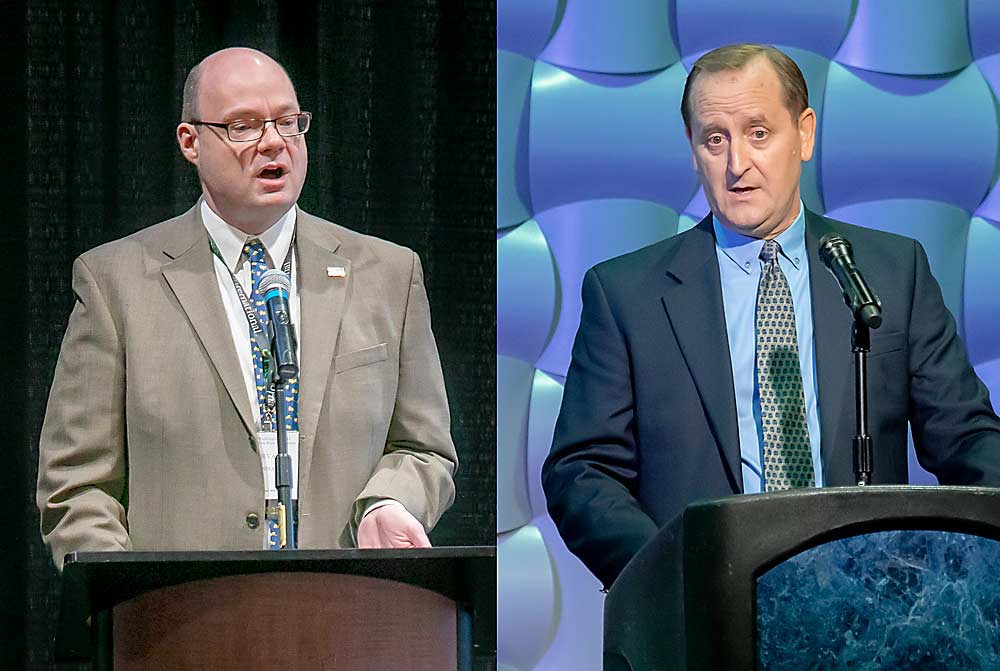
Both industry association leaders shared some political prognostications in a rapid-fire format at the virtual Washington State Tree Fruit Association Annual Meeting in December. Good Fruit Grower followed up with them for more detail.
Washington
In Washington, expect temporary regulations intended to prevent the spread of the coronavirus to remain in place through much of 2021, DeVaney said. Meanwhile, some of those restrictions may become permanent as lawmakers look for ways to create a template for how to respond to future public health crises, he said.
“We keep saying that this has been an unprecedented crisis,” DeVaney said. “Keep in mind that now, it’s precedented.”
Lawmakers in the Senate Labor Committee are considering a proposal to make hazard pay — what the tree fruit industry calls “appreciation pay” — mandatory during health emergencies, DeVaney warned.
Also, brace for an effort to tighten regulations on protecting all outdoor workers, including farm laborers, from wildfire smoke. Late last year, after a bad spell of smoky skies, the state Department of Labor and Industries announced it would kick off rulemaking around air quality.
Wildfire smoke is a known workplace hazard, and Washington law requires employers to protect their workers from it, DeVaney said, adding that “the question is: ‘How prescriptive should it be?’”
The tree fruit association plans to seek flexibility in the new rules, giving growers options for how to comply based on the timing of harvest and the availability of protective equipment. For example, some employers choose to shut down work during thick smoke, but DeVaney wants to avoid blunt rules mandating that in all cases. Meanwhile, employers may face stricter orders about enforcing mask-wearing among their own employees, he said.
Also, Washington H-2A user fees may resurface, DeVaney said. In 2019, the state Department of Employment Security asked the state Legislature to levy a fee on growers who hire H-2A workers, to reimburse the agency for its expenses in administering the program. Lawmakers turned down the fee but agreed to create a new office within the department and an advisory committee of workers and employers. DeVaney would not be surprised if someone floats the fee again.
Then there is overtime. In November, the state Supreme Court ruled that agricultural workers, at least those who work in the dairy industry, are entitled to overtime pay under the state constitution. State law had previously given seasonal farm labor an exemption to overtime, but that was challenged by dairy workers. Future legal action could potentially expand that ruling beyond dairy, while courts will determine if the ruling is retroactive.
Meanwhile, the Legislature likely will take up transportation fuel standards and carbon taxes that would drive up the costs of fruit production and shipping, DeVaney said. Gov. Jay Inslee has long supported action on reducing carbon pollution to combat climate change.
Also, a business and occupation tax exemption for common paymaster arrangements that allow businesses to move money around between separate legal entities for payroll purposes is due to expire, though the tree fruit association plans to seek an extension.
The coronavirus throws a wild card into this year’s policy discussions. The state legislative session, which began on Jan. 11, is convening largely virtually. That will slow down the whole process, leaving the lawmakers to prioritize their agenda. They simply won’t get to everything, DeVaney said.
The other Washington
Bair finds reason for optimism on the national stage. For one, most “apple-friendly” members of Congress have been re-elected, Bair said.
Meanwhile, President-elect Joe Biden’s agenda tilts toward labor, but a new administration and new faces in the U.S. Congress may open the doors for horse trading, he said. That may breathe life into the Farm Workforce Modernization Act, or something like it.
“I think many things might be possible,” Bair said.
The bipartisan measure, which would have revamped several immigration and farm labor issues, passed the House of Representatives in December 2019 but stalled in the Senate.
Bair does not expect a third round of the Coronavirus Food Assistance Program, CFAP, a federal program that made direct payments to growers for the pandemic’s impact on the market. The first round paid out $72 million for apples, and Bair expected even more from the second. The payments, as well as federal purchases for food bank distribution, helped a lot of growers hang on in 2020, he said. “That’s probably not going to happen again in 2021.”
However, USApple and other agricultural groups have been lobbying for help dealing with the extra costs of doing business during the pandemic — extra housing, retrofitting warehouses and personal protective equipment.
Bair expects some tariffs to be rolled back, but not right away. Biden has said as much, and Bair has been discussing tariffs with members of Biden’s transition team.
President Donald Trump imposed tariffs on many rival trading nations. Those prompted retaliatory tariffs that took a bite out of the apple industry, which exports roughly one-third of its annual crop at a value of $1 billion. For example, China’s tariffs on apples are 55 percent, which has affected this year’s shipping window for the 2021 Chinese New Year, when apples are a common gift. Meanwhile, India’s tariffs on U.S. apples now total 70 percent.
Biden has signaled he wants to seek multilateral global trade deals, in contrast to Trump who, in 2017, pulled the U.S. out of the Trans-Pacific Partnership, or TPP, a proposed free trade agreement between 12 Pacific Rim countries. The tree fruit industry favored the measure.
Economists speculate Biden has his work cut out for him. The remaining TPP nations have now formed their own group, while in November last year, China and several U.S. allies in the Pacific also unveiled their own agreement.
The good news on the trade front, Bair said, is that the industry has the U.S.-Mexico-Canada Agreement, a deal that replaced the North American Free Trade Agreement. The two pacts are largely the same, but the new deal locks in the same unfettered trade with the two largest export markets for apples. The industry did not lose anything, which was a big win in a tough year, Bair said.
“We also need to remember the good things, too,” Bair said. •
—by Ross Courtney

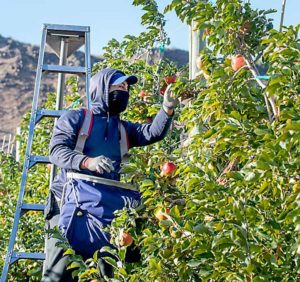
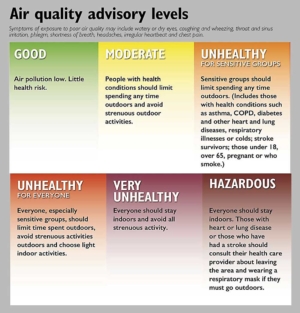
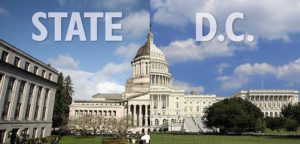
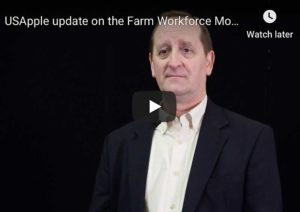





Leave A Comment